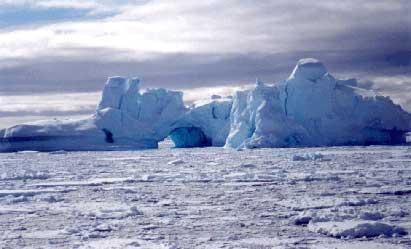Cold kills Antarctic invertebrates

We have heard and repeated hundreds of times that the Earth is warming and American scientists have said that Antarctica has cooled. According to a study published on the journal Nature, in the last 35 years the climate of Antarctica has cooled, especially in summer and autumn.
In general, climate models predict more marked warming in polar regions, as has happened in peninsular Antarctica, but in continental Antarctica it seems that things are different. Researchers at the University of Chicago have studied the dry valleys of McMurdo, the largest iceless regions of the Antarctic continent, and have measured that 0.6 degrees Celsius annually cooled between 1986 and 2000. The biggest declines have occurred in summer and autumn.
In fact, summer temperatures are the engine of Antarctic terrestrial ecosystems, so the effects of cooling can be very serious. Researchers estimate that terrestrial invertebrates are 10% less per year. Without these invertebrates, especially worms, the trophic system can fall. On the other hand, it is observed that the productivity of the lakes is decreasing considerably, that is, the production of organic compounds is reduced.
More information:
Animal retreat
Buletina
Bidali zure helbide elektronikoa eta jaso asteroko buletina zure sarrera-ontzian











